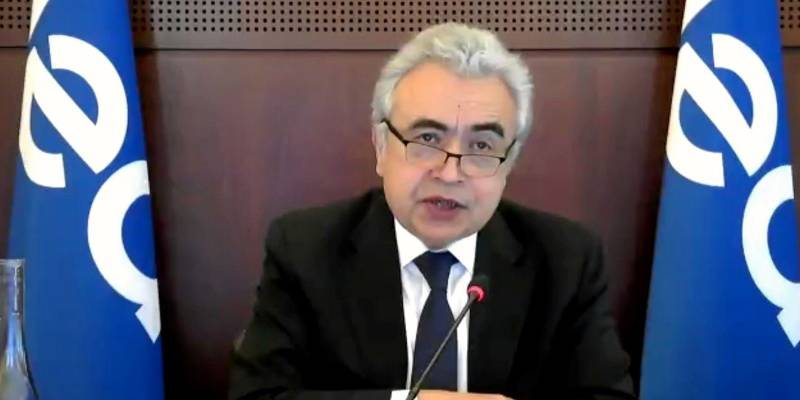IEA outlines plan to cut Russia gas to EU by a third

Stay tuned with 24 News HD Android App

The Paris-based International Energy Agency released a 10-point plan on Thursday which it said could reduce Europe's dependence on Russian gas by a third over the coming year.
The invasion of Ukraine has highlighted the European Union's reliance on Russian gas imports, which totalled some 140 billion cubic metres (bcm) by pipeline last year and another 15 bcm in liquefied natural gas (LNG) form.
That accounted for 45 percent of the bloc's gas imports and nearly 40 percent of its consumption.
The IEA recommended not signing any new gas contracts with Russia, maximising supplies from other sources, accelerating the deployment of solar, wind and nuclear power, and improving energy efficiency in homes and businesses.
"Nobody is under any illusions anymore. Russia's use of its natural gas resources as an economic and political weapon show Europe needs to act quickly to be ready to face considerable uncertainty over Russian gas supplies next winter," said IEA executive director Fatih Birol in a statement.
Bringing Russian imports to zero is a major challenge for Europe, and Moscow is expected to keep gas flowing for the sake of its own financial stability.
The EU has gas pipeline links to Norway, Algeria and Azerbaijan -- but they have limited capacity to increase production.
It can also import LNG by ship -- notably from Qatar, Australia and the United States -- but it is limited by the capacity of its ports and refineries to convert LNG into usable gas.
Accelerate the fight
The IEA said its measures were in line with its existing roadmap to reach "net-zero" emissions by 2050, which already envisioned the EU eliminating Russian gas imports by 2030.
"What is at stake is both the need to accelerate the fight against climate change, and, as we can see now, the short-term energy security of the European continent," said Barbara Pompili, minister for ecological transition in France, which currently holds the EU presidency.
"The 10-Point Plan proposed by the IEA today will enrich our thinking," she said.
The European Commission is set to outline plans for Europe to reduce its reliance on Russian gas next week.
The IEA also outlined more drastic measures if Russian gas imports had to be curtailed more quickly, but admitted these would come at a heavy price for the EU's climate policies.
They would involve switching from gas to coal-fired power plants, and using oil or other fuels in gas-powered stations.
This would increase the reduction of Russian gas imports to 80 bcm, or more than half, the IEA said.
"Reducing reliance on Russian gas will not be simple for the EU, requiring a concerted and sustained policy effort across multiple sectors," it said.
